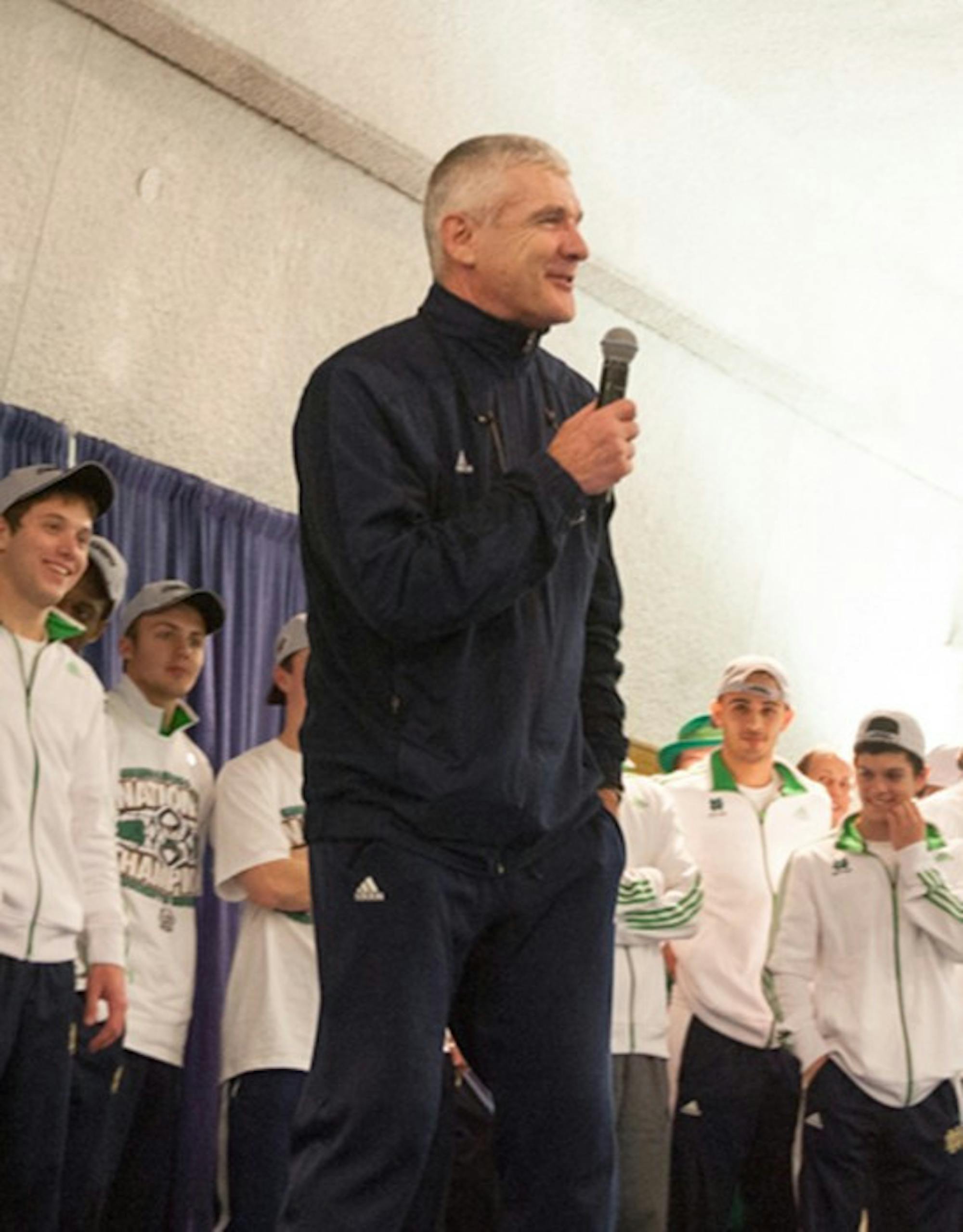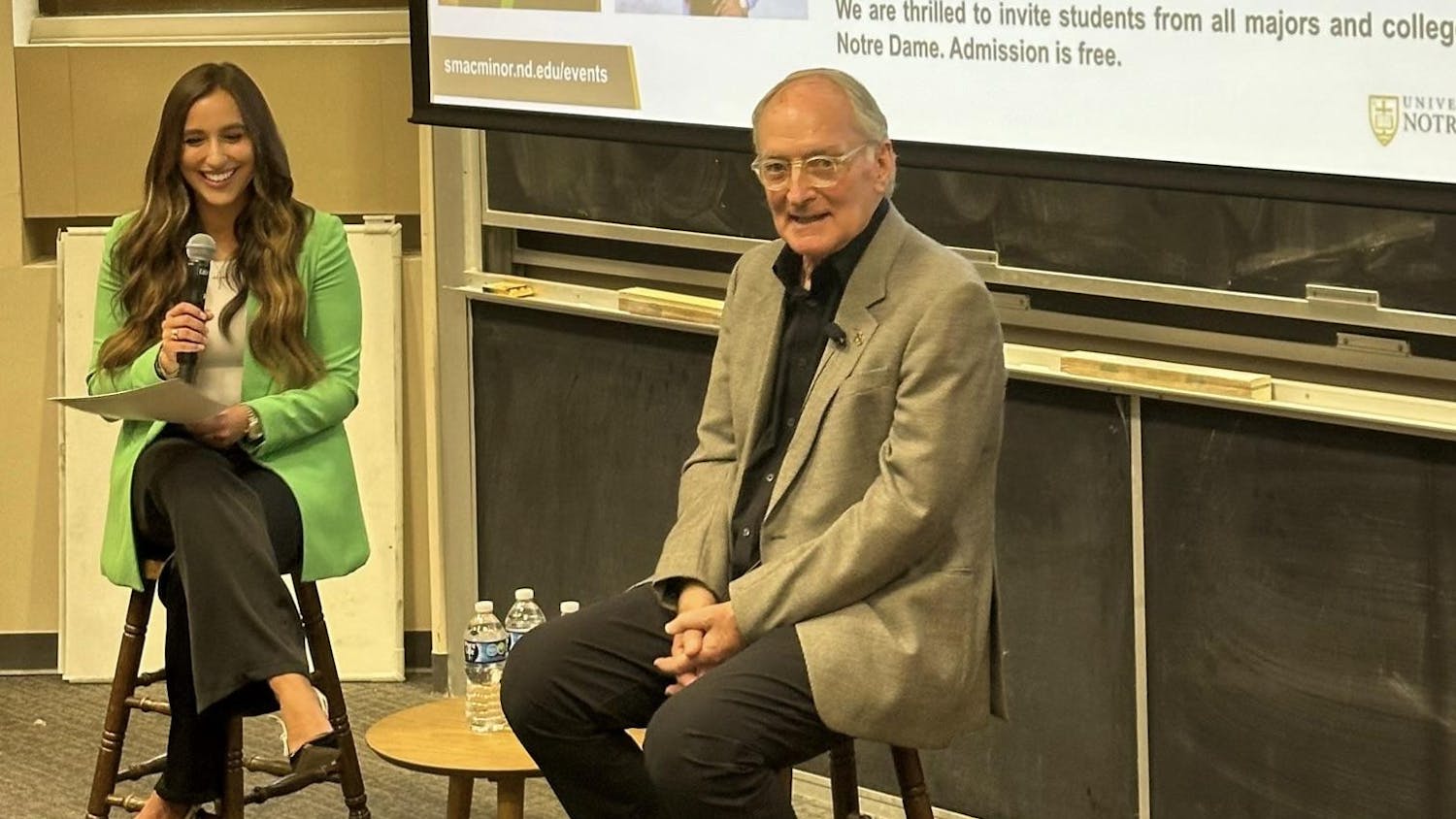Nearly a month and a half ago, West Virginia Athletic Director Oliver Luck met with representatives from Major League Soccer — America's top-flight league — to discuss a proposal that would radically alter the way that men's soccer is played at the NCAA level. The most notable feature of the plan — one spearheaded and supported by many college soccer coaches nationwide — is that it would take the regular season and stretch it into two parts, a slightly longer fall season and a spring season.
To many, especially on the surface, it seems like a good plan. But some, on the other hand, aren't quite sold. And despite his spot on the Advisory Committee, Irish coach Bobby Clark has not quite bought into the new idea.
“I'm not sure [how I feel about the proposals] to be perfectly honest with you,” Clark said. “There are a lot of advantages, but there are also a lot of disadvantages.”

“The biggest advantage would be the one game a week,” Clark said. “It certainly would be less class missed — though we don't miss many classes. We're pretty careful with how we schedule, but it would be easier from that point of view.”
The Irish play five midweek matches this year — the maximum allowed under the proposal would be three; however, four of those five are within a few hours' distance, against Michigan, Northwestern, Indiana and Michigan State. The fifth is a home match with Virginia Commonwealth. But while Clark said he sees the move to spread matches out as a plus, he remains skeptical about the rest of the proposal.
“For me, there's too many areas of concern,” Clark said.
For starters, the new schedule would include starting the spring part of the campaign on the third Saturday in March. The high temperature on March 15 this year? Forty degrees. And while matches are currently played on campus sites in December, some fields — like that at Notre Dame — are heading into winter rather than out of them.
“The only game we have played in the spring is the game when we play Mexico's U-20s on the last weekend of April,” Clark said. “And up to then, there's no real growth in the grass here, so it'd be difficult to go until then.”
And the status of the outdoor grass field isn't the only thing Clark is concerned about — he said he is also concerned about availability of practice facilities.
“We all share Loftus, so you've got softball, baseball, men's lacrosse, women's lacrosse, track and men's and women's soccer,” Clark said. “[During the spring,] we usually get the last slot, and while it's fine going there when we're not in season, it would be a challenge [in the spring].”
As the system is currently set up, teams are allowed to play a few exhibition matches during the spring, like the one against Mexico's U-20 team, but Clark said he wouldn't want to lose the time he uses to really work on his players' technical abilities.
“[The spring] gives you a chance to really work on basics,” Clark said. “As it sits now, the fall is about competing; the spring is more about teaching and learning.”
Additionally, the passing of the proposal could open up Pandora's Box for other sports to pursue similar moves, creating chaos in college athletics. Clark said he also sees concern with the plan since many schools have a shared stadium for their soccer and lacrosse teams.
“Once it comes down to logistics, a lot of the schools in the ACC share facilities with lacrosse, so simply you're in a position where you've got to start looking at facilities situations,” Clark said.
When push comes to shove, Clark said moving to a year-round schedule might be easier said than done.
“I think it's got a long way to go — that's my thought on it,” Clark said. “There are advantages, but there are a lot of hurdles as well.”













